Jake Sigal, Tech CEO On-Road; Biker & Skier Off-Road, Joins The Herd Has Spoken Podcast. Episode 6
Enjoy the Conversation Between Jake and Brad
Brad
Jake, well, let's let's go ahead and dive right into it. I think we're fired up to have you here. And I want to go back in time a little bit. We'll get into all your great professional accomplishments and all the cool stuff you're doing on the bike and on skis. But I want to go back to this moment where you were selling your company Livio to Ford. Okay, you walked in to sign those papers with flip flops, and a T shirt, and you were surrounded by a room of suits. Take us back to that moment and describe what that was like.
Jake
Um, well, it was a really hot day. So that's it wasn't a winter. We'll put it out there. Um, it for me it was that moment was a sense of opening opportunities for investors and other entrepreneurs in Southeast Michigan. And it was the first beginning of like the first wave post com bubble of tech transactions. So for our team, it was a win. And it meant that why we were doing what we're doing, which is getting acid in the cars, it was just that we had this right like we were with the right team. And
Jake
I mean, I just can't say enough about like working with the Ford team and how great they were. They still are and the Livio team and the guys are still there. People are still there. A lot of careers were started at Livio for people so being able to open that so for that moment, it was a really an opportunity to reflect on my career and what I've done and then quickly realized it was about the team and going there so the flip flops part I probably had to do over I should have put some some shoes on but you know at the same time, you always got to have the marble floor lawyers doing what they what they do. So God sent lots of love those guys.
Brad
All right, so so I get it, man, I like team effort, great moment to reflect on what you did. It was a combination of a lot of things. I get it, but what I want to know is I mean, was there just a little bit of you, that was just like, f you to the corporate culture not not like Ford because obviously like they're acquiring you and as part but just like I'm an entrepreneur, man and I am the guy that has the assets that you want. And I'm gonna I'm gonna show up and dress how I want to I mean, was there any moment of like, like, was that a liberating feeling at all I just want to dig into like the emotion the entrepreneur walking in. Yeah, so
Jake
I'm gonna tell you no, that's that's not it, but not probably not for the reasons that you're viewing the viewers thinking about this.
Masamo and I were wondering like what to wear and we decided we were gonna wear what we normally wear on a given day and not make it any other different and it was not like it we want to maintain business as usual and business as usual. At 3136 Elton was shorts and flip flops when it's gonna be 80 degrees outside. So what I think that was, for me, like the only moment I had have kind of like a little bit of like I told you so was for all of the investors and groups of investors and just a lot of them are just straight tire kickers and bozos and there are some great and great investors and greatest out there. But or to find them, you got to get through a lot of just a lot of waste of time. And just remember all the people that said you will fail or this is done because thank god they did too. Right?
Jake
Yeah, tell you that, that pissed me off more than and you know, I, I wanted like this is a line from Moneyball. Like I said, like I hate, I hate losing more than I want to win. And there is a part of me that's like that. But I'll say that to the question about, like that feeling of like, screw you corporate It was not at all like that. And but but we will say that it was screw you to people that that don't want to believe that you can change the industry and in some small way, change the world. And I think to specific like you always hear about Silicon Valley, I say make the world a safer place, we were on the bleeding edge of technology that allowed you to keep your phone connected to your car. Prior to this, it was the oxygen cable, and like the headphone jack, right? For millennials, we used to have headphone jacks on cars, your phone or actually phone, your iPod or your mp3 player or CD player in the car. And the part that a lot of people don't know, I don't even know if I've ever shared this with anyone outside of my close friends. But there are a lot of lives that were probably saved because people had their phones connected to their cars. And they weren't texting, changing their Spotify playlist or Pandora playlist while driving. And for me, and it's such a big part of my life. Now as evolving with increasing safety for bicyclists and scooters and making vehicles safer to own. That was a big part of it. It's like you can't force people to not use their phone while they're driving. You still can't I mean, we all know that. But the there would not have been CarPlay and Android Auto, if Ford did not do Ford SYNC. And we were a part of the Ford SYNC story. But for led that charge, and there's probably a lot of lives saved because of that that Ford made were be part of that.
Brad
Jake, you mentioned something that I think is really powerful, which is hating to lose. And in wanting to prove people wrong when they're telling you you're not you're not going to be able to be successful this, I want to go back to your program manager at Delphi big automotive supply for people who aren't familiar with Delphi. And you decided to go and start your own company alivio internet radio, but what I really want to know is what made you believe in yourself to go and start and create something new because I know so many people out there who are brilliant, and who works so hard at things. But it's a really hard thing to get to that point where you're going to make that big bet on yourself. And so what gave you that inspiration because now it's easy, right? You're on your second company, you're making things happen. But man that never gets easy, right? But
Brad
it's familiar. It's know your pain that you know that you can do and do a deep well of pain and suffer because you've been there before and you know, you're on the right side, but it's a crucible makes you stronger. But yeah, what what at that moment, you know, gave you the strength and the confidence to believe in yourself?
Jake
Well, it's it's really a support team around me. And I know it sounds such I feel like I'm like at the end of like a professional sports game during the postgame. You know, thank God make a team, you know, good credo line. Got it, you know, yeah, that you're always going to get that but let me be more specific. So I'm married, no kids. And my wife hat was working and gainfully employed. And when I was working at Delphi, the program we're working on, which is satellite radio at the time, there are two, two brands of cell radio. You had XM Satellite Radio and Sirius Satellite Radio. They've been merged and now it's one that happened in February of 2017. So when we started up our company, I had a few months at the end of that merger when Delphi said you have the option to move into another gig or will pay a severance and I was 25 I think at that point, and for me like getting a three month severance felt like I had an attorney to get figure it all out and it was leading up to an October I miss I had a few months to wrap up some loose ends. And you know, there at one point, I remember one of the ladies that I was working with, she's awesome. She's like, you know, what are you doing here? Like, you don't need to be here 40 hours a week. And you know, you just get your job done and do whatever you want. So I was looking for more stuff to do. And that's when I learned I had three months basically while I was getting a paycheck to finish things off while I'm ramping up with the new company Livio. And then I had a severance package. And then I had some money saved up and it's something I wanted to do. So it really was the support team. So my wife, my dad, who's an entrepreneur and my grandfather passed where I was born, but he was an entrepreneur as well. So being a third generation entrepreneur gave me some confidence. always been a hustler. So I knew I could do it. And I and the last but not least is the Consumer Electronics Show, which happens in January every year when it's not a pandemic. And I knew that you can hustle and get business done there. So I felt like if there was a time and a place to do this, I've called the TMP time and place that a lot of things in business and in life and probably talk about a little more on this discussion. But that it was really it was the team. And I felt like if there was a time for me to go for it, go for it. And at the time, I had some job opportunities, Logitech, maybe a job offer to be the product manager for their, like one of the consumer divisions, I had a job opportunity to go be a buyer at Best Buy. And that's good money back, Lisa was back then out in Minneapolis, I had a job offer for a company on the East Coast that was making some consumer electronic audio products. So I had some other options. And I'll tell you what makes it hard is when when you have options to make three or four times your salary, and you're 25 years old. And I mean, that's big money. You don't you're not sitting on savings, typically, for sure most of us in our 20s it's tough to say no to that. And the last thing I'll say about this, Brad is that when I when I first told people, I was starting a company that even know how to spell entrepreneur. This is, right. 10 years ago, entrepreneur was not even like a thing. Okay, at least in Michigan, there was code for I don't have a job is what it was.
Jake
I remember I was I was still DJing in nightclubs back then I missed that. I loved it. It was I had more hair and I was thinner. It was awesome. But what I was doing that I remember, I was telling my buddy, he's like, his vice girlfriend is pretty good looking girls like so you're unemployed? I was like, No, I'm an entrepreneur. So you get paid. I'm like, no, then you're unemployed. And that that was it. And so I think they'd like that kind of encapsulates being an entrepreneur, I'm 39 now and you're doing something at that time. It's way different. It was not cool. There were not entrepreneurship programs, and most colleges. Now maybe if you're sitting here on the East Coast, or west coast watching this show, I know we've always been doing fine. But I tell you that for most of the country, it was not the same thing. Facebook wasn't even really poppin back then. So
Brad
it's just a different time, you know, for sure, for sure. And pro tip to the guys tuning in here that are on dating apps. If you put entrepreneur on there, it's still flashing red flag for for ladies to think that you don't have a job. So even in 2020, let's keep that off dating profiles, even though it is more accepted that people get entrepreneurship and think entrepreneurship is really cool. But But yeah, I love this. I love this sort of confidence in yourself that you've you've always had. And I think that's one of the things that makes you really successful is that you, you make so many decisions so quickly and you make, you know, a lot of good decisions. I mean, we all make bad decisions. I think that's one of the things that people who maybe haven't started up their own thing is like, hey, decision is what's most important, not necessarily always the perfect decision, or the right decision. But I know one of the things and you actually started a new blog for yourself OCD CEO, but but I want to I want to hear from you a little bit about how being really particular has helped you in in being a being a CEO, being an entrepreneur, you've got you know, a 20 person, organization that's doing a lot of really cool things around hardware software interface. But I also want to hear you know, how how you think it's, it's it's hindered you and where do you think it's, it's something that you really have to check because I know for me, my greatest strengths or my greatest weaknesses, and I'd love to kind of hear the double edged sword for you, as that self described OCD CEO.
Jake
Oh, yeah, well, definitely check the link for the for the blog, blogger site, but I think that you got to be yourself. And you hear this in early age and you got to do you I mean, that's what it really comes down to. So how I do me like that's like or like what some of the things that make me very unique, that can be a double edged sword is being brutally honest all the time. I don't have the capability to make things up and try to remember like, things that I'll stretch or try to make somebody feel better by saying something like in business at least. So I'll just tell people my brutal, honest truth and being that direct is not I mean, that is a double edged sword. Like you're saying, Brad, I think that for having a process that you can live by and get comfort. So even I mean habits, whether they're good or bad, they're almost always comfortable. Like Yeah, yeah. So I think that maybe Your own habits and finding comfort in those habits. It's, it's awesome. So as like, I'm very much a obsessive, obsessive compulsive person. I love keeping lists, I love checking off things off the list. And on the flip side of it, if I get flustered and I don't have things on a list, whether it's posted on my, my digital to do list, I start moving things from one list to another and then capturing it. Sometimes I'll just call bankruptcy on a document or a list and say, That's it, you know, this is too much. And you start fresh, because it's stressing me out. But having a habit of knowing that, for example, one of my habits is your inbox. And doesn't mean I have to say yes to everything. But I want to make sure that I respond to every email that comes in within 24 hours. And I might respond saying, I'll get to this later, or I'm not going to respond to this or have some time to do this. So being responsive is a habit that I got into at an early age. And that I think about what would people say about me that I do business with, they're my friends and my family. And frankly, when I was younger, a lot things I didn't really like that people will be saying about me. And my best friends told me these things. And they were things that weren't things I was born with. And so it's like, these are things that I can change, and I can move on. And now I really focused on helping and being a helper and making sure that people, we call it a tone, the 123. They know what they're doing while they're doing and have the tools to do their jobs. But for me, it's about having that that habit routine. And the only downside of this whole thing is that, like I said, bad habits are comfortable as well. So getting out of a bad habit is super, super hard for everybody, but especially for someone that that goes through life on these habits. And by the way, I do want to be clear that one habit I have is breaking away. So it doesn't mean that I'm like so regimented, that I can't divert from a schedule. But I plan and I review my goals and objectives for myself every year. And then I'll modify constantly iterate, and you know, always looking for continuous improvement always have a process around you.
Brad
Yeah, so I know you're very process oriented. And that's something that's super important to you and has played a huge role in your in your success, I want to come back, I want to come back to that concept of breaking away because I think that's something that that is super important. And want to come back to that your concept of sort of like check checklists. And one of the things that I know, personally, is that if I feel like I have got too much stuff going on, or I'm starting to feel overwhelmed, one of the things I'll do is I'll like stop, take a minute and clean off my desk in like a very literal sense. Like, there's clutter around me, I can't take it. And and I find that that helps me to sort of clear things out from a mental perspective as well. And then I'm able to sort of refocus. And I think what's really cool that that you mentioned with that sort of bankruptcy idea, too, is just knowing that moment when you've got like too much on your plate, and you've got too many priorities, too many things to check off the list. And you need to reassess and come in and say what are my priorities now. So I'd love to maybe hear a little bit more about, like, when you do feel that way, because I know as an entrepreneur, it's really easy to like, sometimes get overwhelmed, like you love it. But also it can be a lot. So what's what's one of the things that you do to try to like regain your focus when you find yourself, like swimming a bit, or just having too much too much going on.
Jake
Well, I like having priorities on my tasks. And I have tasks I've one list of tasks that are personal and business. And that's like my day to day task list. And I'm very comfortable moving tasks One day, the next and if I realize something's been there for weeks, and it was something I wanted to get done in days, then I'll actually put on the front of it so just to do it, and that's or I'll put the flame emoji as a kind of a reminder of like, gotta get this thing done. I we talked about time and place TMP so my business partner calls this important and urgent, like this kind of this like you know, I knew I'm more of a TMP like a time and place for figuring things out. And then I also like to have a place for things to go and this is it this is true like in my dresser so I have like a sock drawer. I've got a T shirt spot I've got my cycling clothes spot I got my workout clothes spot I've got my nicer you know musk ox you know area for all
Brad
Yes, love it. Oh, it's like I like to keep things in a spot where I can go to physically and mentally. So and digitally blends into both of those Of course. So that's kind of my methodology on this is that I like to have a few places and always know where I can go to something. And sometimes I'll put something and very much in like an agile development process. You have a backlog and sometimes something backlog just goes in a notebook and I'll call it Later in, in I'm working on a software project. So I think that that those are some things that have helped me and having time off schedule time to do my spring cleaning and and that like having knowing that I have time allocated to get through all of the miscellaneous items, or a GFCI list. It's like if I say, Okay, I'm going to shut down every other window, like on this call now I don't anyway, windows open, my phone isn't silent. I think the only person that can break through that would be like my emergency contacts like that, like I basically put myself in the right frame of mind that right place and the right time to be able to handle that list.
Brad
Well, what's important Now, another good one. Yeah,
Jake
it's like acronym soup. So
Brad
yeah, for sure. I want to get your reaction on one quote, as how you do anything, is how you do everything. What's your perspective on that?
Jake
I've heard that before how you do anything, is how you do everything. I think it's, it's a good mantra, and it's an attitude. So I'll come back to that one with one that I go to a lot, which is from Earl Nightingale. He's has a famous quote about the scariest secret in the world. And it's the the basic concept is that we are what we think about, and we become what we think about. So I guess my response to, like, everything and anything, I look at this as more as you get, you get to decide what you do. And what you do is, in my opinion, way more important than how you do it. But there are limits to that, like you have to be doing things appropriately. But being able to get things done and in business in life and treat people the right way while you're doing it. I mean, that's some people would argue that how you do what you do is more important than what you do. And I don't, I don't really subscribe to that. But it becomes like a philosophical evening of conversation on a point like that. So I kind of look at this as like, if you know where you want to be, and you know where you want to go, you have to just stay focused on that vision. And anything else that gets in your way mentally, during a pandemic, anything is blocking you from that, you have to get those blockers out of the way in order to achieve that, and everything comes at a cost. And for example, like Brad, for me, I lost my 20s where everyone else was partying and having a good time I was working the castle. And when we sold the company, there are like childhood and college friends of mine. They're like, we aren't surprised, like they were not surprised at the least because they knew that I was so damn serious where everyone else is just right. You know that that's a cost of doing it. So that's all I thought about was winning. And that's what I focused on. But to be clear, I think that having a good process. And there, I also have different levels of importance on different things that I do. So I don't need to be best, I don't really want to be the best at everything. And there's the best. And there's another side of this is like being the best version of yourself. There's some things where I'm just like, you know, I when I was younger, I want to take on a lot more. Now I'm just like, you know, I, I want an expert come in here and figure this out and you have a match, we have a saying at our company, we want to hire people smarter than us. And it makes really makes our job a lot faster and more enjoyable because we're working at an elite level and it's improving. So I know we're getting a little bit off off that question. But I just want to put some color around this that I think that from my standpoint, it's a little bit a little bit of a different view. And it's definitely not for everybody. But it certainly worked for me. But it's part of again, what I said earlier about me being me and you got to be you and do things your way.
Brad
Yeah, I think that's really important. And one of the things that you mentioned, that I love is you got to get the blockers out of the way. And one of the things that I really believe is the actions that we take on a day to day basis, our votes towards how we will define ourselves in the future. And to me, how we define ourselves is critically important. Let me let me unpack that a little bit. So if if I wanted to be a runner, and I haven't run in, in 10 years, right, actually have but you know what I'm saying like if you want to if your goal was to become a runner, and you've been sitting on the couch for a long time, and you go out and you run around the block, you're not going to come back and say I'm a runner, right? But guess what, you've made a vote single vote, that you will identify yourself in the future as a runner. And then if you make another vote the next day and another vote the next day, and then fast forward and you run that five K and next thing you know you're on a 10 K and then you run a half marathon. And then you run to over the course of six months. Now. You're saying, I'm a runner. And and I think that's really powerful to know, like, Hey, what's getting in my way? What are the blockers towards me being that person that I really want to self identify as because I ultimately it doesn't, it doesn't really matter what someone else self identifies us like that shit doesn't matter. But how you identify like that, that really matters. And you can fool a lot of people, but you can't fool yourself.
Jake
Yeah, yeah, I agree. And I even go a step further. So I picked this up along the way, I got some advice somewhere on this, I don't know who to contribute to, but I didn't come up with this is that don't tell people what your goals are. Because it by telling people what your goals are, it already makes you get the feeling because they'll they'll say, Oh, that's great, or Yeah, you're a runner. Now in this example, do it first and don't tell anybody. And it's beneficial for yourself, not just that you won't fear failure. Some people will say, Well, if I tell people, I'm going to quit my job and start a company, or I'm going to go invent something, I can do this project, you end up getting a lot of the benefits of winning from telling people that you're doing something in the first place. So it's tough. And I'd say this isn't I mean, I'm guilty of this sometimes. But I'll get involved in projects, I won't tell anybody about these projects. And then next thing, you know, someone's like, wait a minute, what do you do? And it's because I want to prove to myself that I'm capable of getting away. When we have a new employee started our company, the first day on the job, he or she has a executable line of code or a project when or something that they can say that they did, because that's where it starts, it starts with getting very small wins. Yes, sir. It's on the football field. Like when you like the typical name, one of 100, high school football movies, talking about that inch all the way to the boardroom, you got to make sure you can get wins early, and continue stacking those up. So I look at this as like, don't tell people about what your goals are. Just write them down yourself and go get them unless that person is a blocker, and you need to have them be unblocked to support. So I mean, could just be something as simple as like, You're, you're trying to, you're trying to make a decision about who you want to be when you grow up. And we ask this to every one of our staff members, whether they're out of college or they're in their 50s or 60s, it's like that asking question changes. So I think that being able to find those wins and try some new things. It's going to empower you to take some risks, and be able to differentiate between your dreams and goals. Dreams are great guys have them. But turning turning something into goals and something that's attainable. That's that's really the difference that between the two from in my opinion.
Brad
Fantastic. I want I want to change gears a little bit here. And we'll go back to one of the things we mentioned earlier, which is breaking away. And this is an area where I think he just absolutely kick ass, which is you're you're obviously a successful professional, right? doing your thing nowadays at home. And that's fantastic. We've all got our own, you know, Arena in which we're working on but you're also really into biking as evidenced by the bike Nice, nice, nice Musk's hat in the background for you. For those of you watching on video, you can you can verify that audio, I guess you have to take my word for it, but you're into biking, you're definitely into skiing. And that's something that you think you do really well. So how are you able to set us set aside time? Like how do you transition from Jake the work guy to Jake on a bike, right? I mean, that's, that's not easy to do for for a lot of us with the world, we're so locked into what we're doing, like, talk to me about how you're able to break away.
Jake
So, as a as a passion, cyclist, and skier. I think that the old adage of entrepreneurs work half days you just get to choose as 12 hours a day you want to work certainly applies the calendar. And going back to that we talked earlier about process, my calendar is up to date all the time. Now I'm not putting in like when I'm eating dinner, or if I'm hanging out with friends unless it would be on top of like a work schedule or a day off. But having my time organized is very important to me. So in my calendar, I have my weekly group rides I have when I go to the gym at noon on Tuesdays and Thursdays in the calendar and I also have a pro tip I do where I have two meetings in the calendar, my meeting which is actually working out and then around that I put a buffer meeting from 1130 to one o'clock, which is my block time so I have time to get there and then time to get home, eat shower and get back to work. So if someone's looking at my calendar, they know to some of your questions. Brad is that when any one of my teams looking at my calendar, they're gonna know when I'm actually on a bicycle riding. And I'm actually like in the gym, when I'm actually on the mountain skiing when I'm actually on an airplane versus just kind of ambiguous time. If I don't put something on my calendar between eight 830, maybe 8:30am, Eastern and six, somebody else will. And that's just how it is. So you have to own your schedule, and then be flexible to accommodate the needs of business. So I don't cancel by grinds, but I will reschedule them. And I think that with my brand, of having a really high ratio of what I do, versus what I say, I'm going to do, knowing that I can deliver what my my friends need when my wife needs, what my what my business needs, I get that flexibility. And every once in a while, I'd be sad again, like sometimes I just need to just get away, like what you said right out, reorganize your desk. Sometimes if I have internal meetings, and I tell people, every once in a while it's a great day outside, I just need to blow off the rest of meetings today, that in a lot of companies means I'm no showing them. But in our environment, it is a combination of like filming in and let me get back on this later. And I just need to take a safety break and get out there. So that that's how I do it. And that can't work. So if you're listening to this, and you've got a boss probably won't work that way. But what can work for you is talking about some accommodation time in the schedule, especially around lunch, talking about a couple days a week where you say like, hey, if you work a job that is in like the 830 to 530 block that most of us in the US are in and our respective time zones, you can say look, I'd like to start working at 630 on Tuesdays and Thursdays. And if possible, I'd like to shut it down at 334 o'clock on Tuesdays and Thursdays to shift the hours. If there's any teenager, something I can certainly accommodate and get those. But I'd like the opportunity to spend a little more time on me and put in the schedule. I would bet that unless your boss is a total jerk, he that he or she would say yes to that. So like being able to like my, the way I handle my calendar will in my opinion not work for an employee, even my company would be kind of challenging, but you still have opportunities to do that. And the reason it works for me is because I'm willing to put in the amount of hours and volume that as an employee you really shouldn't be I would never expect my people to lie to you and that they're not the owners. So there I just want to delineate that there's a difference to what I do but the reason out the rationale and reason why I still think it apply for for people that are working on a team one of the one of the things I love that people mentioned to us all the time is when we're flying which is put the oxygen mask on yourself before assisting others and and honestly think that's basically what you're doing. When you're carving off time on your schedule saying like, I'm going to the gym, I'm riding like hey, this is taken care of me and I got to take care of me in order to take care of the company whether it's closing deals or thinking about our strategy or dealing with many challenges that that exist out there. So I think that's that's definitely good good advice. So got a couple final questions here before before let you go and wrap up So real quick I know you've got a lot of things you're dealing with ongoing basis and you deal with them fantastically but what let's talk about some things that just set you off but what's your biggest pet peeve Jake
Jake
I think when people can they overcome it so I talked about these the senior ratio which actually fishermen like I do say ratio but you got to be doing what you say you're going to do just say no people if you're not going to do something, if it's showing up at a party at a dinner meet for coffee or hey I'll call you next week or I'm going to get this task done. Just Say No I'm not going to do it don't say you're going to do it and then not do it because it just it just drives me up a wall and it probably judging from some wall and then that becomes your brand is the person that's always like hey yeah, we should get together for lunch or Yeah, get right on that and then you're that you don't you do not want to be that guy.
Jake
Hundred percent. Kindness is honesty. Honesty is kindness. And I think so many people get this warp thing in their mind was like oh I don't I don't want to I don't want to be mean I want to be rude as I know just just said expect the honest just say like I think that saying no more than you say yes. is not a bad thing. If you're if you're thinking here are the same this might be me try saying no five times in the next this weekend say are safe, no five times and or just marketing piece of paper and see what happens. You're not gonna regret it.
Brad
I love it. I love it. Jake, you mentioned some advice you've gotten before. What's the best piece of advice that you've been given?
Jake
I think practically is knowing the difference when you're speaking to people. So saying the word i a lot more than you say the word you when you say you statements. So Brad, you told me that we were We're going to be doing this call this call is not what you said it was going to be versus Brad I'm really excited to be on this call, I was expecting something slightly different, but I'm really happy to accommodate so I don't know if there's any way we can discuss this. But you know, I would I just want to let you know how I feel the I and you and understanding that you and puts people on defensive versus when you say I statements, it just really softens things up and everything in life. So that's something that my dad taught me and and men helped me just stick into I statements. Now if you do it too much, though, then it becomes like this, like hypnosis style, like you know you're being salesy, Miss, but generally speaking, if you've got an issue, or even just want to communicate some feedback, like saying, one of my mentors was like, Hey, can I give you some constructive feedback, and find that time one on one and letting them know, like, letting the person know what you heard and how it made you feel? And it might have come off this way. And if it's I then it just, it just sort of softens it. So I think it's a great, great way of going about it. I use that all the time. I couldn't think of a better way to end the podcast here today. Well, Jake, we really appreciate you being on we appreciate you being part of the musk ox herd. We appreciate you wearing our flannels out in Colorado and skiing in the Rockies. And friggin dominant in the trees. Maybe sometimes, poking holes in your coat. Got to fix duct tape. That's it. That's muskox man and you right there.
Jake
Yeah, you gotta gotta do you. And I just, I mean, thanks, everyone for the time that gravy on the show. And yeah, if you guys check the links to follow me and you kind of keep in touch but definitely down to just keep everybody moving forward. So appreciate it.
Brad
Yeah. Thank you. Thank you. Like you mentioned we've got the links down below in the description so you can keep in touch with Jake Siegel. The OCD. Oh, yeah,
Jake
Check out that blog. It's a it's kind of wild. It's definitely on the fringe: https://ocdceo.blogspot.com/
Brad
Thanks. Alright, take care. Thanks, Jake. And that's a wrap for this episode of the herd has spoken. Big thanks to Jake Segal, CEO of tome software for joining us today also the author of OCD SEO blog, you can check out the link to his to his blog in the description. If you enjoyed today's episode. It would be really helpful for us if you could like subscribe and comment on today's episode and on the herd has spoken in general on Spotify, Apple podcasts or wherever you are listening to today's episode. Also to learn more about musk ox please visit our website go muskox.com where you're gonna find all sorts of fantastic out there apparel to help make sure you are ready for the next adventure for the herd has spoken.
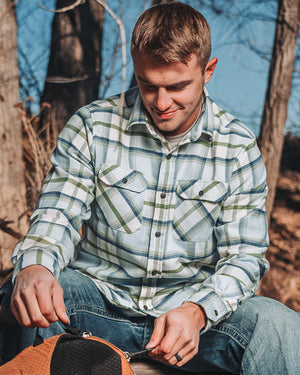
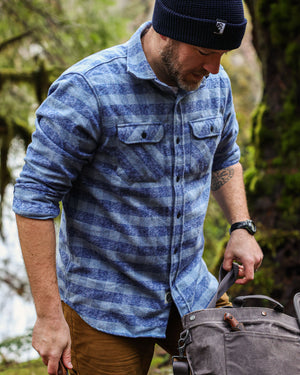
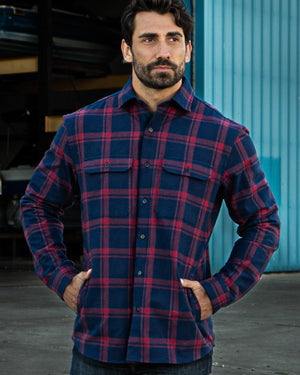
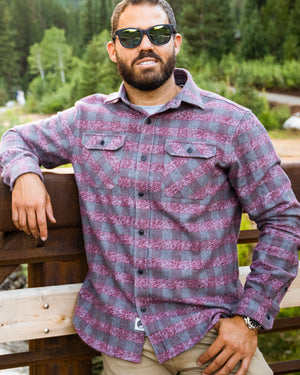
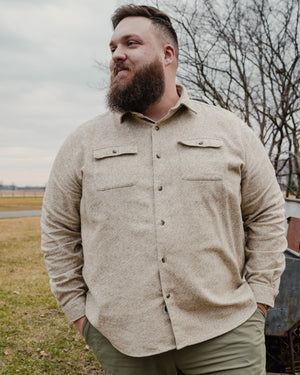
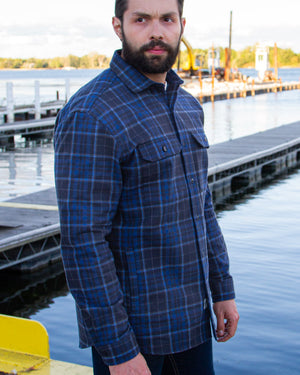
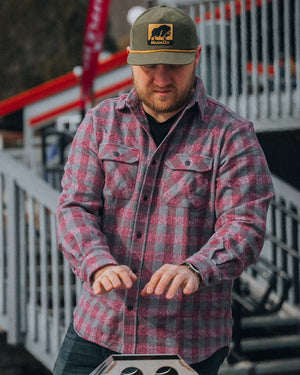

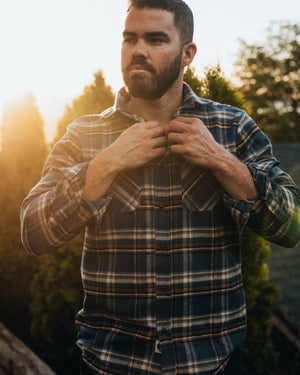
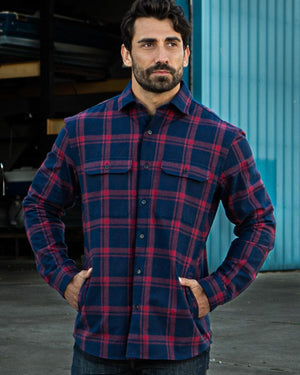
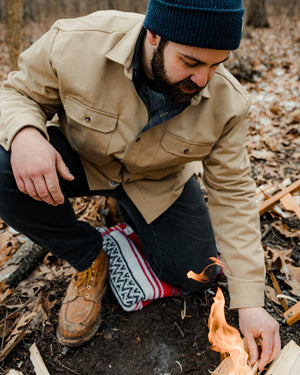
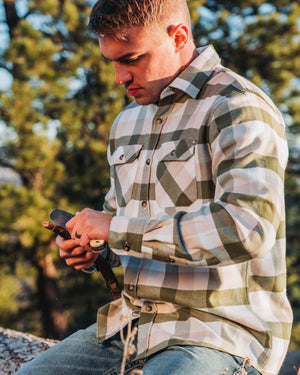
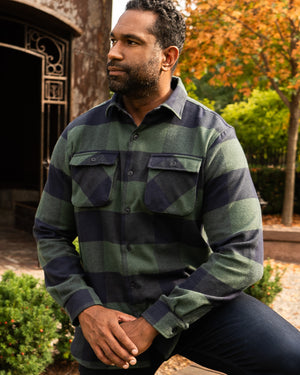
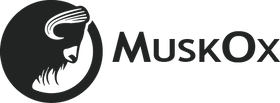

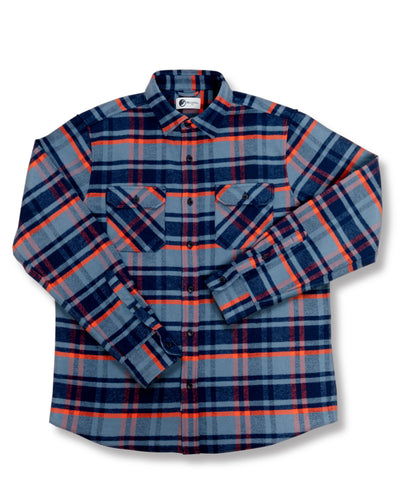

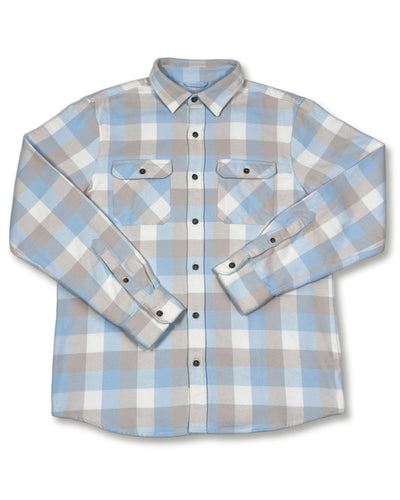
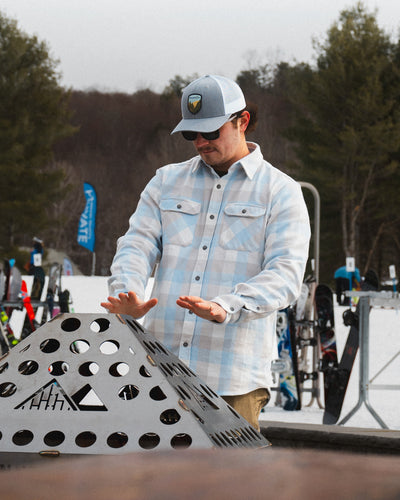
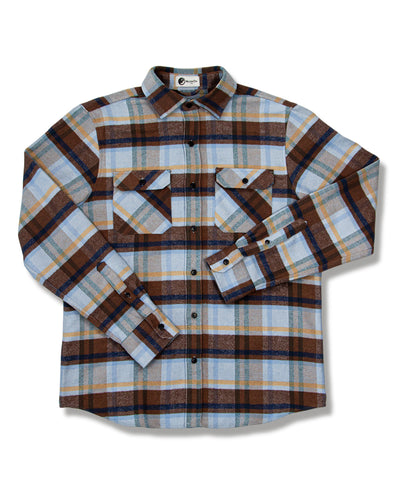
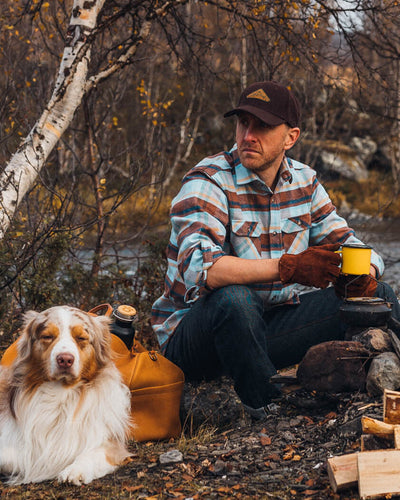
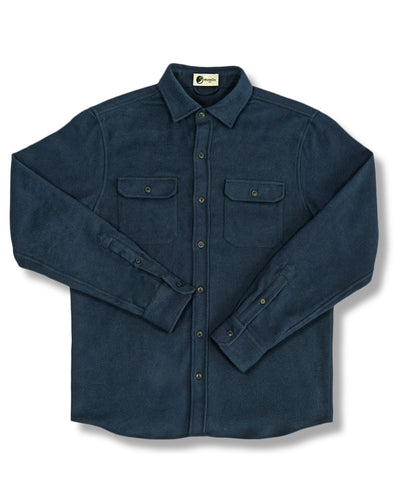
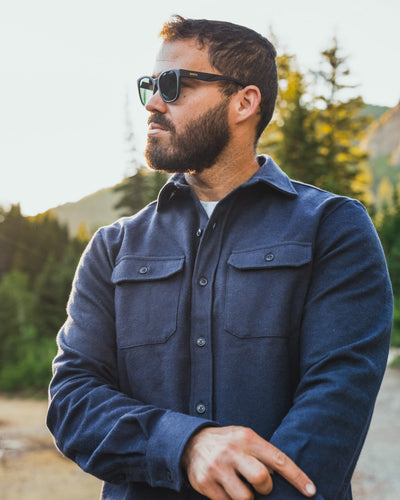



Leave a comment